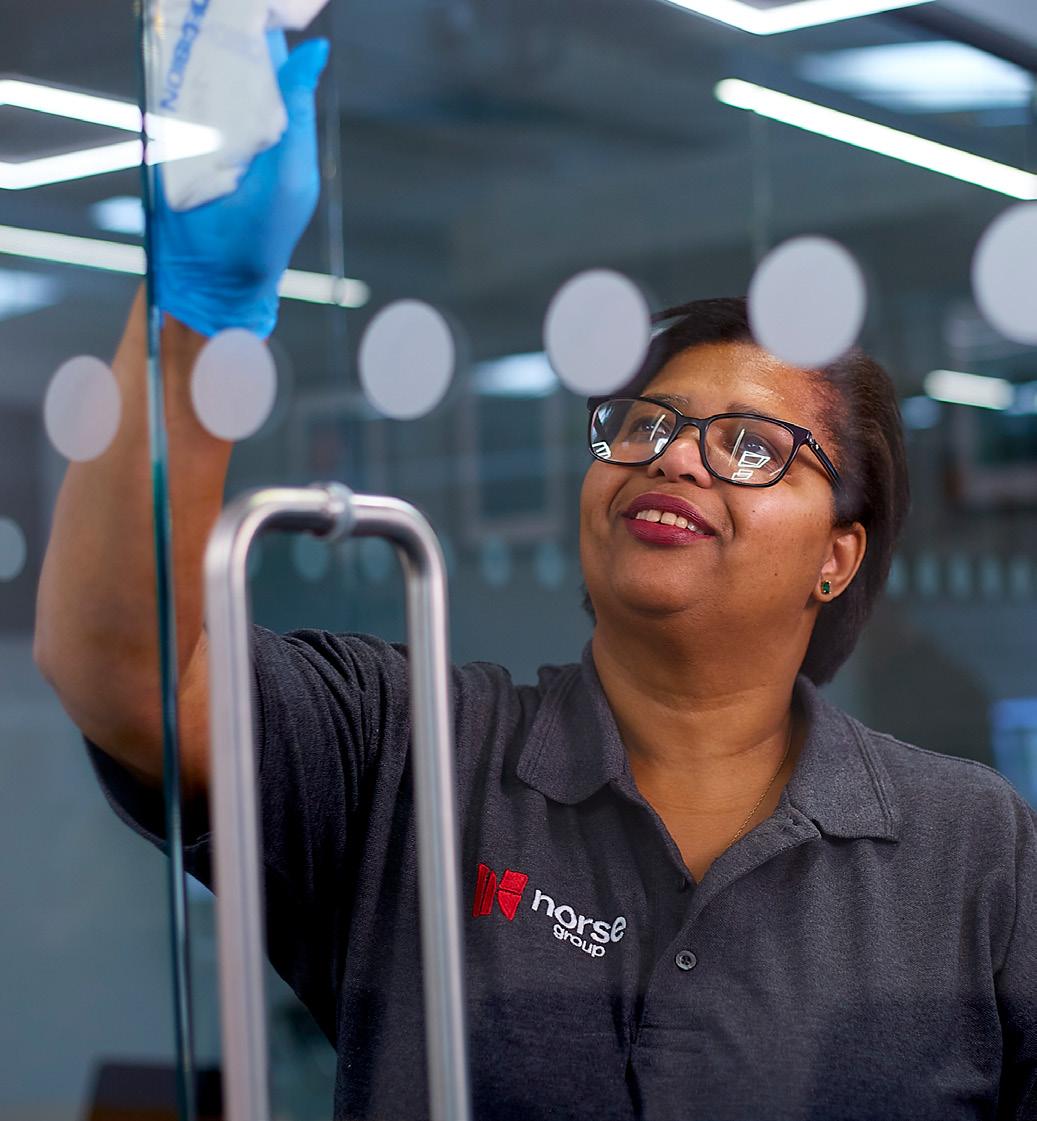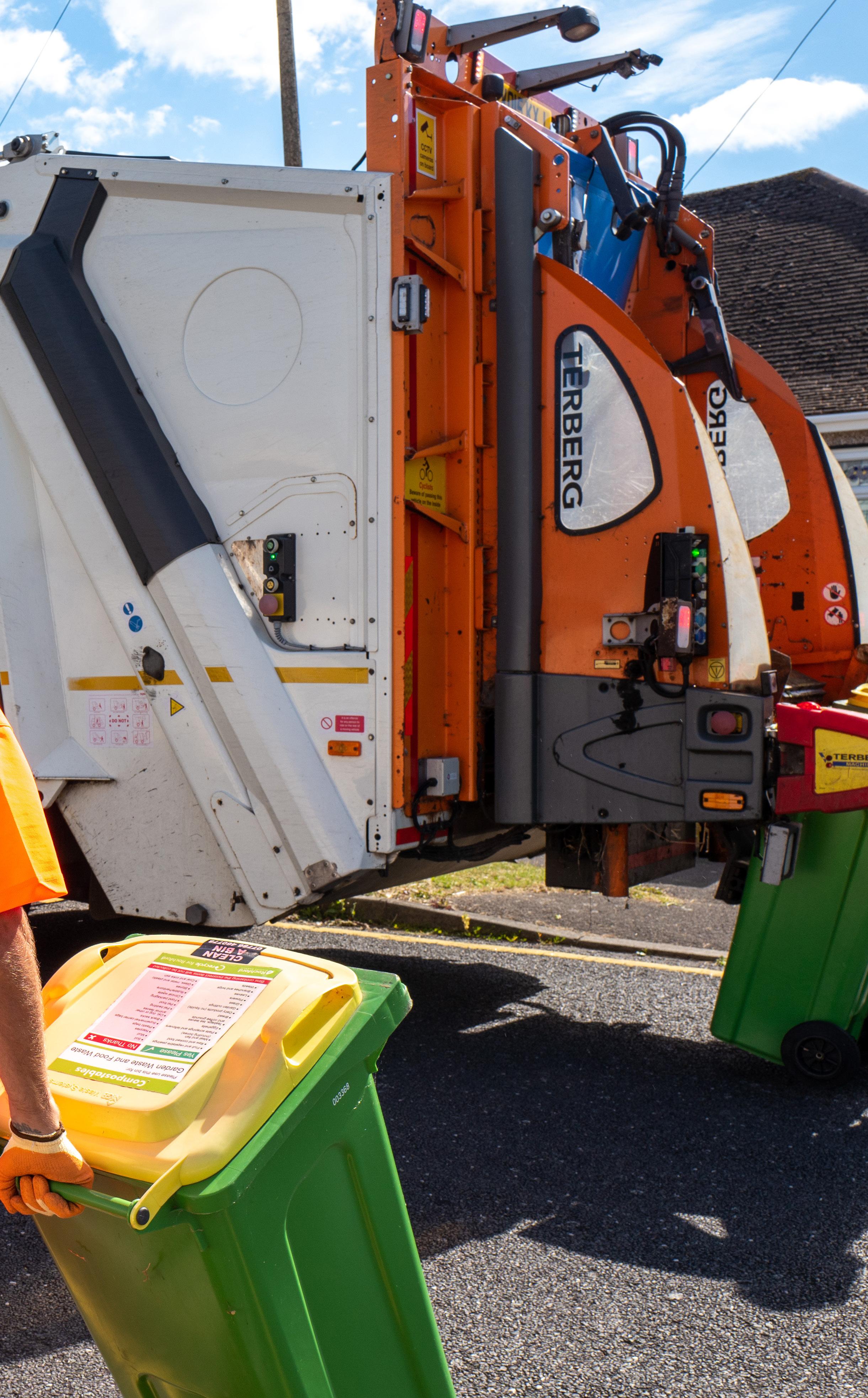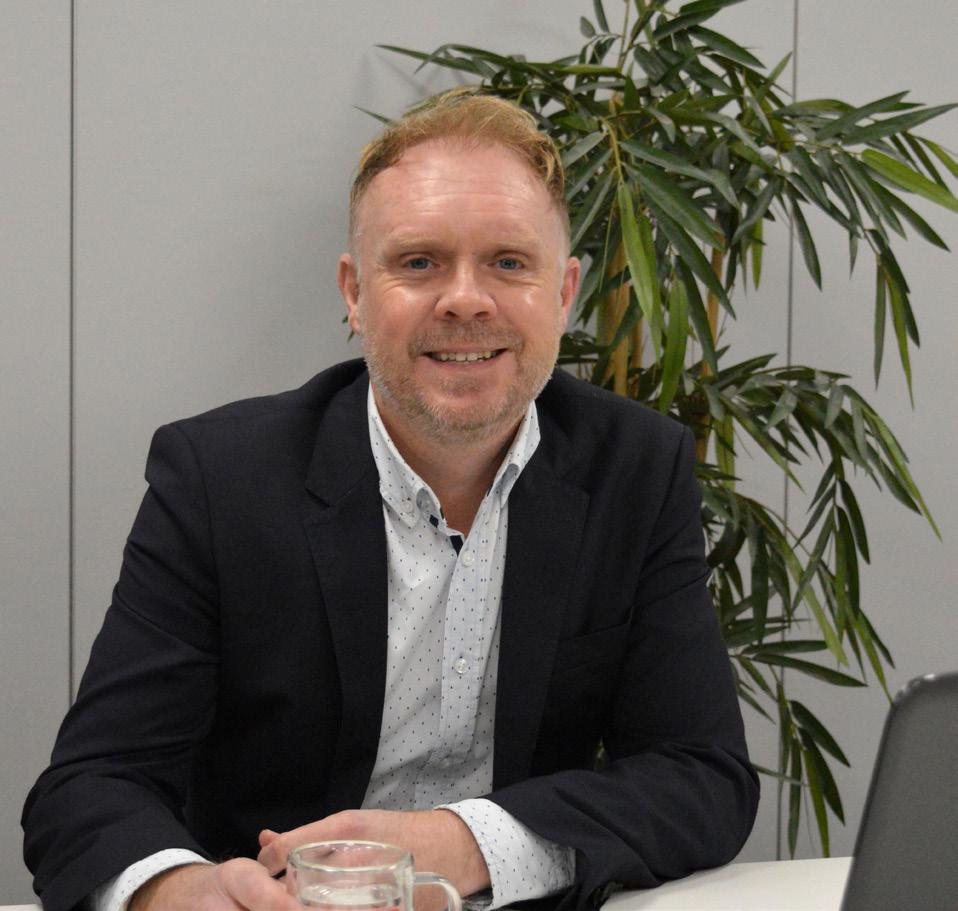
Consolidating procurement in the public sector to drive innovation and sustainability




Consolidating procurement in the public sector to drive innovation and sustainability


Simon Bullimore, Head of Group Procurement at Norse Group on the company’s organisational approach to procurement in the UK public sector.
he Norse Group is the largest Local Authority Trading Company (LATCO) in the UK, and it aims to improve people’s lives while generating ethical, sustainable profit for the public sector. In a context of cost pressures posing significant service challenges for councils and public bodies, Norse Group’s unique partnership approach to flexible service provision provides abundant opportunities to design and execute collaborative solutions.
Norse Group supplies a significant number of services including catering, grounds maintenance,

highway maintenance, transport, security, fleet management, facilities, cleaning, consultancy and adult social care.
Each one of these areas has its own supply chain, and Simon Bullimore, Head of Group Procurement at Norse Group oversees all of them. Simon joins us today to discuss the Group’s complex supply chain network and how it embraces consolidation, technological innovation and sustainability in its operations.
“So not only do we supply an array of services and sectors, but we also do it by what we call joint ventures

“We are developing a new computer system across the Group which will give us much better management of the information and data from our supply chain”
with several local councils in the UK,” begins Simon. “A joint venture model is a dynamic and reliable model for local councils. We spend in the region of £187m per year on products and services, and given the number of sectors we're in, we've got an extremely diverse supply chain. As such, cost control, governance, sourcing, tendering and the whole procurement cycle sits with me and my team –there’s no real element we don't cover.”
Simon explains that Norse Group takes a consolidated approach to procurement to ensure success in light of its expansive and complex supply chain.

“Since the Group merged in 2019 to gain efficiencies and improve services for customers, breaking down silos and integrating the business has been a priority,” says Simon. “This is understandable as all these areas have their own profits and losses to consider, plus they are trusted to run their own areas of the Group.
“But procurement is a function that touches and helps empower every single part of Norse Group. We cover a huge amount of ground and it's only recently that we are starting to really pull together and leverage our spend. Part of my role is to laud the benefits of joined-up procurement, especially while we're trying to achieve progress and results in the current economic climate.
“A consolidated approach to procurement is essential due to the nature of public sector governance and also meeting the commitments we make to ESG. Our targets simply cannot be achieved across a widespread and non-controlled supply chain.
“Our colleagues are starting to realise as well that everyone across the business wants to deal with the best suppliers, and the reliable

aspects of volume and spend still shout the loudest for attention. But our consolidated approach to procurement makes us an attractive organisation to work with and that's the key: be that in how we handle supplier management, consolidated group spend or streamlining our supply chain.”
So what are some of the key projects underway at Norse Group where the consolidated approach to procurement is unfolding? Here, Simon highlights the Group’s approach to ESG.
“As with all businesses, we take the ESG side of our operations very seriously,” says Simon. “We've always had obligations as a Group because of our position as a LATCO and our Norfolk County Council ownership. So we've always been up to speed on aspects like sustainability and the Slavery Act or Bribery Act, right from the beginning.
“A recent project within our supply chain governance relates to one of the biggest risks with modern day slavery: the overseas textile market,” says Simon. “Here we've worked to engage with businesses that are SA8000® accredited and part of the Sustainable Textile & Leather Production scheme (STeP scheme). STeP accreditation recognises adherence to best practice approaches to safety, ethics and sustainable production within all manufacturing facilities.
“Our CEO, Justin Galliford, drives a lot of our ambitions in net zero and carbon emissions – our target is to

reach net zero by 2050 and we have long since had a robust sustainability policy in place. The role we have in procurement is to make sure we take these values into the work we do, in the back end of the business. We cannot promote ourselves as an ESG thinking business if we do not demonstrate an ESG thinking supply chain, all the way from our suppliers through to client delivery.
“We value suppliers that can bring ESG relevance to our business, whether it be our workwear made from recycled fabric or removing the single-use plastics with the help of our partner Bunzl.
“They are ahead of the curve when it comes to sustainability, and what they are able to do is take a look at your product range and give you an idea of what sort of products can be removed and which ones you can replace. Bunzl also helps us as partners by assisting us with reporting. They have a strong understanding of demonstrating


the tangible outcomes of making sustainable swaps in our product range.
“This level of collaboration is the ideal partnership that we look to put in place where we're not just analysing price. We're looking at the total cost of ownership, which is an old-fashioned term, but it's still a relevant term.
“Everywhere we turn, I believe there is opportunity for sustainable choices. We need to make sure we grab the right ones, ignore the non-creditable ones and deliver everything we can into the business in the process. This includes taking care of really simple things like reducing supplier deliveries, wherever possible. I think that's often forgotten, but it's a very simple fix, which comes with very little risk.
“Another project we’re working on is we're looking to add a social value tool into our supply chain and procurement process. Essentially, when companies are bidding for our contracts, they will need to
complete a special social value tool which calculates that all-important social return on investment and helps us quantify exactly what is being achieved. Our current and future clients want to see these actions from us because it's essential work for all. The road to genuine and measurable sustainability is complex, but it starts with your supply chain.”
According to Simon, there are unique opportunities and challenges arising within public sector procurement and the Norse Group leans into them to meet its goals of generating ethical, sustainable profit and ultimately improving people’s lives.
“In terms of challenges, the actual discipline of procurement is broadening and deepening all the time. It used to be about doing great deals, putting suppliers and contracts in place for the right price and that was it.
“Now, as we all know, it’s so much more than this which is obviously great for the profession but creates ever greater challenges, such as incorporating the many things that the government wants to see in public sector spending, such as awareness of sustainability and social value. There are also carbon reduction requirements and very specific rules around bid submissions. On top of all this, we are required to make opportunities accessible for SMEs.
“When it comes to public sector procurement and the opportunities it presents, I feel many people get unsettled by the regulations and how
“We embrace deploying new technology and taking innovation forward wherever we can, where the business case makes sense and we can reduce total cost of ownership”

rigid they can be, especially if you’re coming from the private sector like I did,” explains Simon. “The regulations themselves can be a challenge but the procurement sector is fantastic for offering support.
“There are consortiums, frameworks, and mechanisms in place, such as those provided by ESPO, CCS and YPO. There's often guidance that can help people who benefit from economies of scale and leverage. So when it comes to these public buying consortiums, I've always seen them as another element of my department.
“Moreover, a well-run public tender will more often than not yield the right supplier for your business. Take the core elements like the standard selection questionnaire that carries out your due diligence for you. You are forced to have open and transparent evaluation criteria making you give particular focus well ahead of your tender and the timescales that are required to be followed, which ends up adding real structure to the process.
“At Norse Group, we look to take the rules and regulations and use them to our benefit as much as possible.”
Looking ahead to the future of public sector procurement for Norse Group, Simon emphasises the impact of new regulations and policies alongside the economic circumstances as influential factors.
“The Procurement Act 2023 that landed last year will continue to shape what we do in public sector procurement,” says Simon. “In my opinion, the bill will deliver significant benefit to the public sector. The production of the new procedure, namely the competitive flexible procedure, completely changes the landscape. We will be readdressing how we compile our tenders and taking an approach that means each tender we do will have the ability to shape the nature of what we're procuring.
“I think for far too long the first interaction with winning bidders in the public sector has been the handshake and signing of the contract. With the new procedure, we plan to engage with the supply chain early and we want to design a procurement exercise that means we get as full a picture as possible before we award contracts. It also means your key stakeholders can
become better engaged and you get a better feel for the people you may well be working closely with in the future.
“It relies on the supply chain wishing to engage on a higher level than just bid writing, but in my opinion, it's an opportunity for the supply chain to persuasively sell their services. If you speak to most commercial and salesorientated people, they will tell you a chance to get in front of the process early on is what they really want. So from this aspect, I think the new legislation is a massive positive step.
“Another element worth noting here is it's not always easy to demonstrate things like ESG when writing a bid, so if people are given the chance to come
and demonstrate to you what they can do earlier on, this will give you a better impression of their services.
“The last dynamic which will be important for the coming years is the fact that prices are rising in all manner of areas. We combat this through techniques of consolidation to leverage spend and to focus on supplier relationship management (SRM) more, meaning we get closer to our suppliers. We understand the challenges coming up and we work to mitigate them in a mutually beneficial way. We want to be a business that the supply chain wants to work with – you cannot just dismiss all the issues on cost at the moment, price increases are a shared challenge. We strive to work with people who are aware of
We are proud to partner with Norse Group to create a cleaner, safer and more sustainable world







our challenges, as well as their own, so we build a relationship-driven and data-driven business.”
In light of the legislative and economic circumstances impacting public sector procurement, Simon describes the importance of wielding technology and innovation to enhance and streamline operations at Norse Group.
“For instance, if you look at all the vehicles that we support, we have a vendor-managed inventory system,” says Simon. “When it comes to all the spare parts that are managed by our suppliers on-site, we use technology to asses our stocks and demand which is a real driving force for us.
“We've also invested heavily into our specialist cleaning equipment, reducing our labour costs significantly. Since COVID-19, there have been a lot of technological advancements and innovations in that area, especially in our health and social care settings.
“We are developing a new computer system across the Group which will give us much better management of the information and data from our supply chain. We still spend a lot of time securing Management Information from our suppliers, and with our new system, we will be able to use this to drive strategic decisionmaking. We embrace deploying new technology and taking innovation forward wherever we can, where the business case makes sense and we can reduce total cost of ownership.”
For further information about Norse Group, visit norsegroup.co.uk.

‘Quality time with my boys’
For Simon, spending time with his twin sons is a calming and deeply rewarding experience.
“I find whenever my mind feels a little scrambled, I will sit down with my two 5-year-olds and talk to them,” says Simon. “Their uninhibited, fearless and carefree outlook on the world is a real leveller: they keep me grounded and aware of the truly important things in life.”
“Many people have read it, but if you haven’t I highly recommend Atomic Habits by James Clear,” says Simon. “I have a demanding role and balance this with having young twin boys. For me, the book really helped me bring positive change and habits into my relatively hectic life.”
Connect with Simon
norsegroup.co.uk